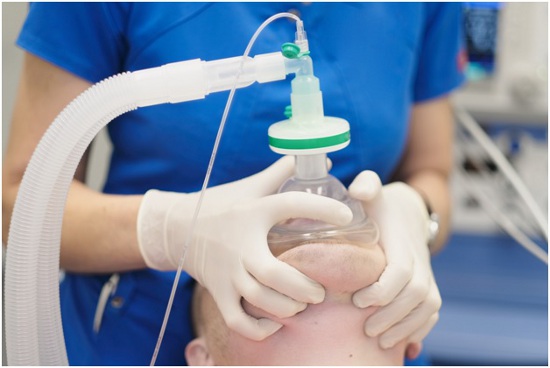More than 230 million operations are carried out under general anesthetic in any given year. That number has only climbed in the last decade. General anesthesia rates as one of the most mundane, frequent elements of medical practice.
If you or a loved one is having surgery for the first time, anesthesia can seem nerve wracking. You may wonder, “What does anesthesia do to the brain?” You might even start thinking about complications.
We’ll go over what to expect when you go under general anesthesia.


Before General Anesthetic
When you schedule your surgery, your doctor will provide pre-operative instructions on things to do or avoid. Most of the time, this will include some sort of dietary restriction. The extent of the restriction depends on the surgery.
The typical length of food restriction sits at about six hours. Some surgeries may allow clear liquids closer to the time of surgery. A surgery involving the gastrointestinal tract will require more stringent restrictions.
Medication, Drugs, Dietary Supplements, and General Anesthesia
Before a surgery that requires a general anesthetic, make sure to tell your doctor what medications you take. You should also list any dietary supplements or recreational drugs you use. Your doctor will tell you things to avoid.
Remember to answer questions like these honestly. Your doctor doesn’t want to get you in trouble. Both of you will do better if everything is on the table.
During General Anesthetic
During your procedure, you’ll receive a gas mask or IV line. The anesthetist will administer the initial sedative, and from that point, you’ll be asleep. Afterward, you’ll receive assistance with breathing, which may include a tube down your windpipe.
Long periods under general anesthetic often include urinary catheterization. Doctors sometimes disagree on whether to catheterize.
While your surgeons operate, a member of the anesthesia team will operate one or more anesthesia machines. These will keep the medication at a safe dose and keep you asleep. They also take care of breathing and temperature.
After Surgery
After your general anesthesia, you may feel groggy. Expect to be confused for the first ten minutes or so. Some people wake up faster or take longer.
You may wake up in the recovery room or the operating room. This gives doctors time to watch your reactions. Many patients report itching, achiness, nausea, or post-operative pain.
The medical devices used to support you during surgery may cause their own issues as well. Breathing tubes and catheters can cause soreness in the area of insertion.
Once you’re awake and oriented, a member of your care team will check in on you. You’ll receive any post-operative instructions you need at this time. This can include how to care for your surgical wounds or symptoms to watch out for.
Try Not to Worry About Anesthesia
While complications do occur from anesthesia, they remain infrequent. In most cases, a general anesthetic accomplishes exactly what it sets out to accomplish: mostly-painless surgery.
Curious about more specific surgical procedures? Making plans to take care of yourself after surgery? Try reading some of the articles in our health section.

























